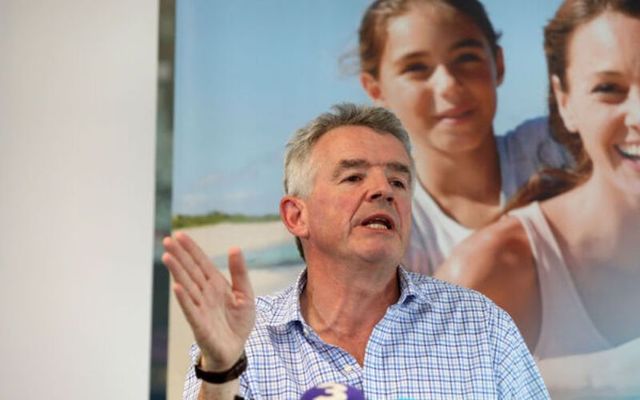Ryanair CEO Michael O'Leary has predicted that he will "make a fortune" at Christmas due to a passenger cap at Dublin Airport.
Ireland's main airport currently has an annual passenger cap of around 32 million, which has been in place since 2007 as part of the airport's efforts to obtain planning permission for a second terminal and an expansion to the original terminal.
Last year, Dublin Airport applied to Fingal County Council for permission to expand the passenger cap to 40 million per year, but the council has asked for more information and is yet to approve the application.
O'Leary recently told the Irish Government that the current passenger cap is untenable, adding that Dublin Airport can cater to roughly 60 million passengers every year following the completion of a second runway in 2022.
He told the Oireachtas Transport Committee that Ryanair would "make out like bandits" over the holiday season this year due to passenger restrictions at the airport, stating that he will be able to charge up to €500 for one-way flights due to demand. He added that Ryanair will be able to charge as high as €1,000 for round trips over the holiday period.
"I will make a fortune this Christmas," O'Leary reportedly told the Oireachtas Transport Committee.
He also warned that the passenger cap will mean that the benefits of Ryanair's future expansion will bypass Dublin Airport in the future.
Despite being able to charge huge prices for flights over the Christmas period, O'Leary is keen to keep prices as low as possible, according to a report in Fortune.
The publication states that O'Leary stands to net a whopping $108 million if he can keep Ryanair's share price above €21 for 28 consecutive days.
The expansion of the Dublin Airport passenger cap would reportedly help Ryanair meet that target.
O'Leary, meanwhile, also bemoaned "a couple of Nimbys in north county Dublin" who filed complaints about the noise in Dublin Airport.
Fortune reports that Dublin Airport received more than 26,000 noise complaints in 2022, placing even more scrutiny on efforts to increase the passenger cap.




Comments